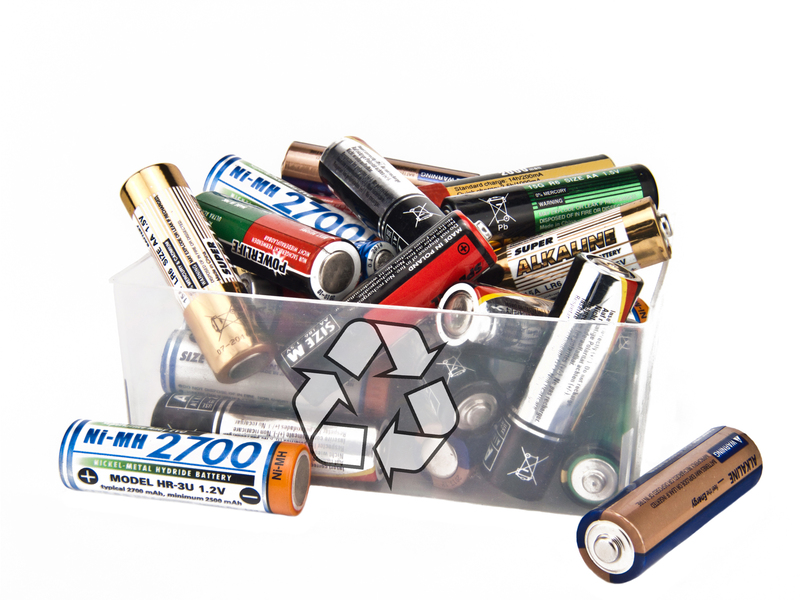Your Role in Responsible PPE Waste Disposal
In today's world, the use of Personal Protective Equipment (PPE) has dramatically increased, especially in response to health crises and improved industrial safety standards. While PPE such as masks, gloves, face shields, and gowns play a vital role in protecting individuals and communities, the disposal of these materials poses significant environmental and health challenges. Your role in responsible PPE waste disposal is more crucial than ever to mitigate the negative impact of PPE waste on our planet and well-being.

Understanding the Importance of PPE Waste Management
The surge in PPE usage has led to a corresponding increase in PPE waste generation. If not handled correctly, discarded masks, gloves, and other protective materials can contribute to environmental pollution and public health risks. This makes responsible PPE waste disposal not just a recommendation, but a shared responsibility for everyone--individuals, businesses, and institutions alike.
Why is Responsible PPE Disposal Critical?
- Environmental Protection: Improperly disposed PPE often ends up in landfills, waterways, and oceans, contributing to plastic pollution and harming wildlife.
- Human Health & Safety: Used PPE may harbor pathogens, posing infection risks to sanitation workers and the general public.
- Regulatory Compliance: Many regions enforce strict guidelines for medical and hazardous waste. Failing to follow them can lead to fines and reputational damage.
What Constitutes PPE Waste?
Before delving into your responsibilities in PPE waste management, it's essential to understand what PPE waste includes. Common types of personal protective equipment considered waste after use are:
- Disposable face masks (surgical, cloth, N95)
- Single-use gloves (latex, nitrile, vinyl)
- Protective gowns and aprons
- Face shields and goggles
- Shoe covers and head covers
Most PPE items are constructed from plastic polymers such as polypropylene, which do not decompose easily and can persist in the environment for hundreds of years.
Your Responsibilities in PPE Waste Disposal
Individual Responsibility
Each person can make a significant difference in responsible PPE waste disposal. Here's how you can contribute:
- Dispose of Used PPE Properly: Do not litter used masks and gloves. Always place them in a designated waste bin with a liner.
- Segregate at Source: If possible, keep PPE waste separate from regular household waste to prevent contamination and make waste processing easier.
- Do Not Recycle Used PPE: Most municipal recycling facilities do not accept contaminated or used PPE due to health risks. These must be discarded as general waste or in specific hazardous waste bins where available.
- Minimize Unnecessary PPE Use: Only use PPE when required. Overuse leads to additional waste generation.
- Cut the Straps: Before disposing of disposable masks, cut the ear straps to prevent wildlife from getting entangled.
Workplace Responsibility
Workplaces, especially those in the healthcare and industrial sectors, generate significant volumes of PPE waste. Responsible management includes:
- Establish PPE Waste Bins: Provide clearly marked bins specifically for used PPE at strategic locations.
- Employee Training: Educate staff on proper PPE usage, handling, and disposal procedures.
- Follow Hazardous Waste Protocols: Use color-coded bags and comply with local hazardous waste regulations for PPE disposal.
- Regular Collection and Disposal: Arrange for regular and safe collection by authorized waste disposal services to minimize risks.
- Waste Reduction Strategies: Encourage the use of reusable PPE when possible, provided hygiene and safety are not compromised.
Community and Institutional Responsibility
Communities and institutions can amplify the impact of individual actions by:
- Raising Awareness: Launch campaigns on the importance of PPE waste management and its impact on the environment and public health.
- Installing Disposal Facilities: Place designated PPE waste bins in public areas such as shopping centers, public transport stations, and hospitals.
- Partnering with Waste Management Services: Work closely with local authorities and waste management companies for safe collection and treatment.
Challenges in PPE Waste Disposal
Despite growing awareness, responsible disposal of PPE waste is fraught with challenges:
- Lack of Infrastructure: Inadequate waste collection and segregation systems, especially in developing regions.
- Public Apathy: Many people are unaware or indifferent to the consequences of improper PPE disposal.
- Potential Contamination: PPE waste often contains biological contaminants, making handling and processing hazardous.
- Limited Recycling Options: Current recycling technologies are not equipped to handle mixed-material or contaminated PPE waste.
Best Practices for Safe and Responsible PPE Waste Disposal
At Home or in Public
- Bag It Properly: Place used PPE in a bag or lined bin. If you are sick or caring for someone who is, double-bag the waste and tie it securely.
- Store Before Disposal: Let the PPE waste sit in the bag for at least 72 hours before putting it out with other garbage to minimize risk to waste handlers.
- Do Not Burn PPE: Burning PPE releases toxic chemicals. Always use the municipal waste stream.
- Keep Out of Reach: Store bags containing used PPE away from children and animals until disposal.
At Work and in Institutions
- Use Biohazard Bins: For medical or laboratory settings, dispose of PPE in red or yellow biohazard bags as per local guidelines.
- Secure Transport: Arrange for authorized waste handlers to collect and transport PPE waste to treatment facilities.
- Record Keeping: Maintain logs of generated PPE waste volumes for regulatory reporting.
- Employee Safety: Ensure waste handlers are supplied with necessary protective equipment and are trained in safe disposal practices.
Innovative Solutions and Alternatives for PPE Waste Management
Given the rapid influx of PPE waste, new solutions are emerging to improve sustainability and reduce landfill dependency.
Recycling and Upcycling Innovations
- Specialized Recycling Programs: Some companies are piloting closed-loop recycling that converts PPE, like masks and gloves, into plastic pellets used for making construction materials.
- Upcycling: Creative projects are upcycling used PPE into functional items like park benches and road paving materials, giving a second life to waste.
Developing Eco-Friendly PPE
- Biodegradable PPE: Research and investment in biodegradable masks and gloves can minimize the long-term environmental impact.
- Reusable PPE: Where safe and appropriate, washable masks and protective gear offer a sustainable alternative to single-use items.
The Environmental Impact of Improper PPE Waste Disposal
When PPE waste is not disposed of responsibly, the consequences can be far-reaching:
- Plastic Pollution: Disposable PPE items are often made from non-biodegradable plastics. Once in the environment, they can break into microplastics, polluting water sources and entering the food chain.
- Harm to Wildlife: Animals can mistake PPE items for food or get entangled in ear loops and straps, leading to injury or death.
- Blocked Sewage Systems: PPE waste flushed down toilets or drains can obstruct sewage systems, leading to urban flooding and infrastructure damage.
- Spread of Disease: If contaminated PPE is left in open areas, it can become a vector for the spread of infectious diseases among humans and animals alike.
Legal Perspectives and Government Guidelines
Many national and local governments have published guidelines emphasizing the importance of proper PPE waste management. Some common regulatory directives include:
- Mandated Segregation: Encouraging or requiring separation of PPE waste from other waste streams.
- Use of Specific Bins: Designated bins or bags for PPE to reduce contamination and aid in safe collection.
- Prohibition of Open Disposal: Bans on public littering and open dumping of used PPE items.
- Community Awareness Campaigns: Government-supported educational initiatives on PPE waste handling and disposal.
Check with your local waste management authority for the latest regulations and facilities in your area for responsible PPE waste disposal.
Tips to Encourage Responsible PPE Waste Disposal
- Lead by Example: Demonstrate proper PPE disposal practices to friends, family, and colleagues.
- Communicate Clearly: Use signage in workplaces and public spaces to guide people on where and how to dispose of PPE items.
- Share Information: Participate in or organize awareness campaigns to educate others about the risks of improper PPE disposal.
- Choose Sustainable Options: When available, opt for eco-friendly or reusable PPE gear to limit waste.
- Stay Updated: Follow local news and updates on best practices and facilities for PPE waste management in your community.

Frequently Asked Questions (FAQ) on PPE Waste Disposal
-
Can used masks and gloves be recycled?
Typically, used PPE cannot be recycled via standard municipal programs due to contamination risks. Specialized recycling initiatives are emerging in certain areas. -
Is burning PPE waste a safe disposal method?
No, burning can release toxic chemicals and is not recommended except in controlled incineration facilities adhering to environmental standards. -
What should I do if there are no special PPE disposal bins nearby?
Seal used PPE in a bag and place it in your regular trash, ensuring it is not loose or likely to spill during handling. -
How should PPE waste generated by COVID-19 patients be handled?
Double-bag PPE waste, tie securely, and clearly label. If possible, notify waste collectors in advance.
The Future of PPE Waste Management - Your Continued Role
As society adapts to higher safety standards, ongoing vigilance around proper PPE waste disposal practices remains vital. Technological advancements, regulatory action, and public participation must all work hand-in-hand to curb PPE pollution and health hazards.
Every individual's commitment to responsible PPE disposal contributes to cleaner communities, safer workplaces, and a healthier planet. Whether at home, work, or in your neighborhood, your informed actions make a meaningful difference.
Together, we can protect both people and the planet by embracing thoughtful, responsible, and sustainable PPE waste management practices.